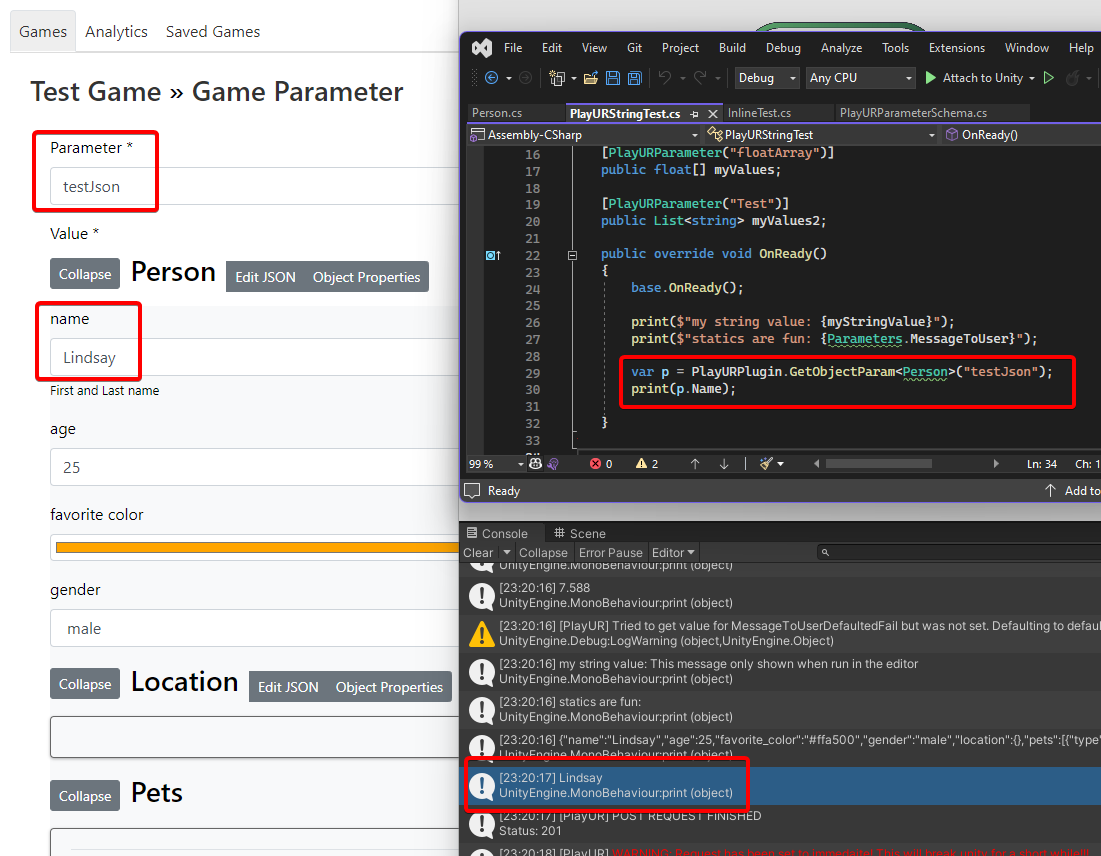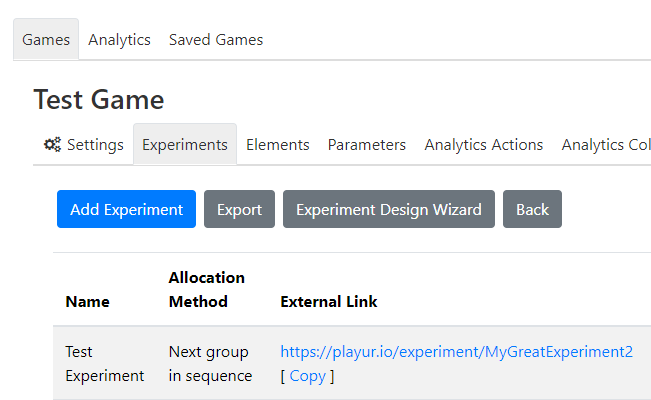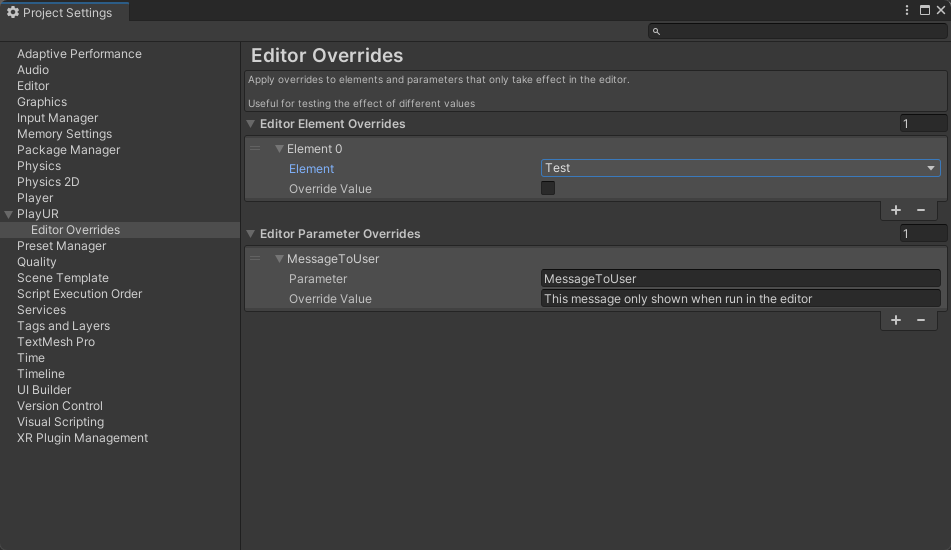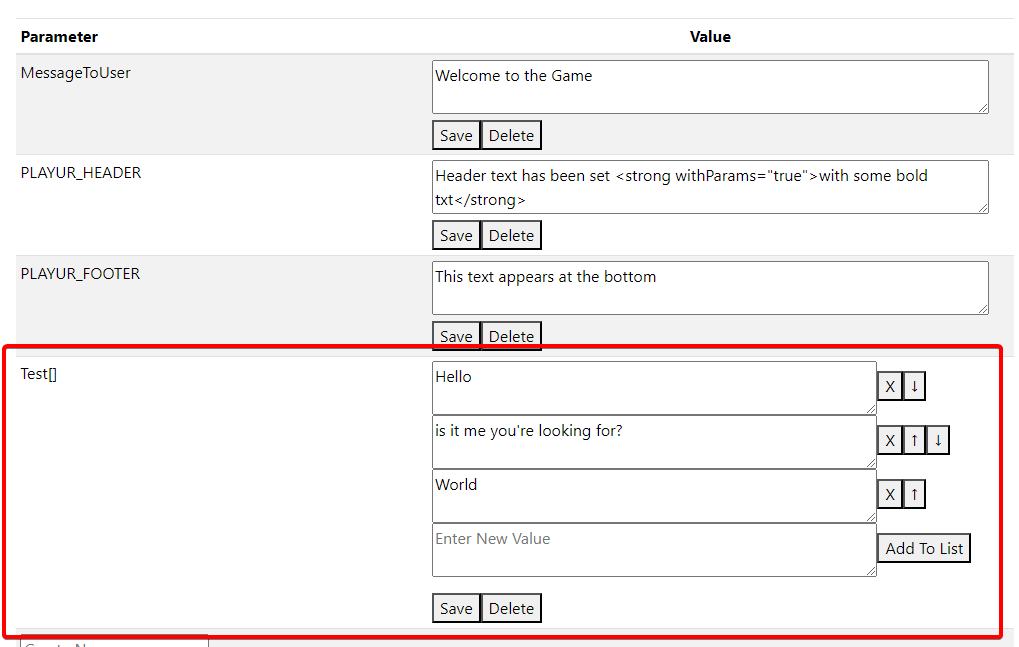Welcome to the playUR Platform
A platform for user research testing, through games!
Log In » Sign Up For Researcher Accounts » Note, researcher accounts only available upon request, and to KIT327 UTAS students.
What's New
9 March 2024 - Game Features Selection
The default available tabs and options on PlayUR have been simplified. You can now choose which PlayUR features you would like to enable for you game, which will make more tabs available to you. You can find this setting in the game settings page. Here are the features that you can turn on and off:
- Custom Page Styling (CSS, header and footer text)
- Ethics And Pre Registration
- Saved Games
- Additional Owners
- Amazon Mechanical Turk Integration
- JSON Parameters
- Game Elements
- Game Parameters
- Analytics
30 January 2024 - Standalone Builds and Experiment Selector
You can now choose to build Windows and MacOS Standalone apps in Unity. Game owners can use Ctrl+Shift+E when launching a standalone build to open the experiment selector.
11 December 2023 - Parameter Schemas and Code-Generation
Parameters can now be defined using JSON Schema, which allows for more complex parameters to be defined. In the parameter's metadata, select a schema for that parameter to follow.
Parameters with a schema will have a special editor in the experiment designer, which will validate the parameter against the schema and provide a user-friendly interface for editing the parameter.
When you select "Regnerate Enums" in the Unity plugin, the plugin will generate C# classes for each schema, which you can then use in your code.

27 November 2023 - New Layout and Navigation for Experiment Design
The pages for configuring experiments now support the browser back button and direct links to pages. The layout of the pages should now be more intuitive, and some minor quality-of-life improvements have been made.
The old layout is still available here but is deprecated.

22 November 2023 - Parameter Overrides and Unity Parameter Attributes
Parameters and elements can now be overridden in the editor, to make things easier for testing. You can find the setting in the PlayUR -> Editor Overrides settings panel.

There is also a new C# attribute for fields in PlayURBehaviour classes, which will automatically populate the field when the plugin is ready.

17 September 2023 - Parameter Metadata and Bugfuxes
The latest release of PlayUR addresses some minor issues that users had.
The concept of parameter metadata has been added, allowing users to attach a description and expected type.
10 July 2023 - Documentation Updated
The previously out-of-date documentation has been regenerated to match the current version of the Unity plugin. This documentation will be further improved with guides and extra information added, and undocumented classes documented.
You can see the documentation here.
17 May 2023 - Parameters Code-Generation
To ensure mispelt parameter names are caught at compile-time, you can now generate static strings fo parameter names using the PlayUR -> Regenerate Enums option. This will generate a static class called Parameters which contains constants for each parameter name, which you can then use in your code.
Example usage in Unity: PlayURPlugin.instance.GetStringParam(Parameter.MessageToUser)

11 May 2023 - Auto-Registration
To reduce the number of clicks for users to get into an experiment, you can now enable auto-registration. This will automatically create a user account for the user when they first visit the experiment page.

10 May 2023 - Parameter List Support
You can now define a parameter as a list by typing [] after the parameter name. You will then be given an editor to add/remove/reorder items in the list.

9 May 2023 - Custom CSS, Header and Footer Text, and Custom Header Image
You can now customize the look of the game page (and any ethics/login/register pages) by changing the settings on the Game page.
Header and footer text can be customized per-experiment/group as thes are defined by parameters.
